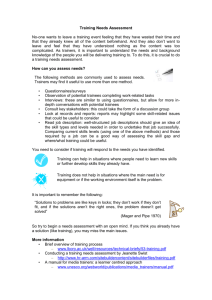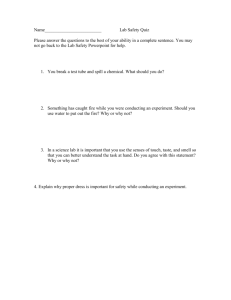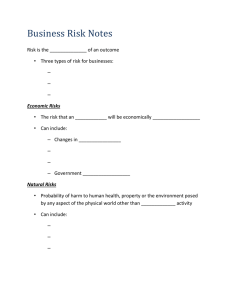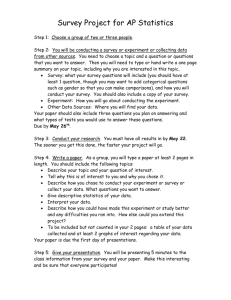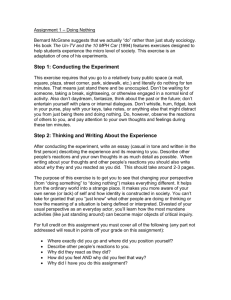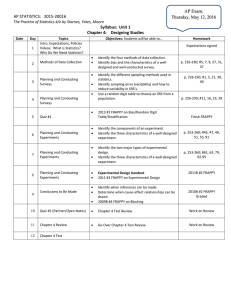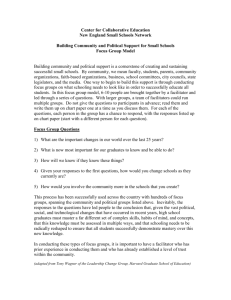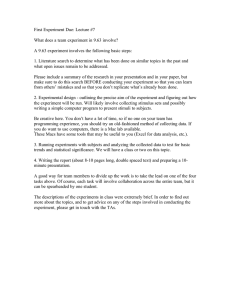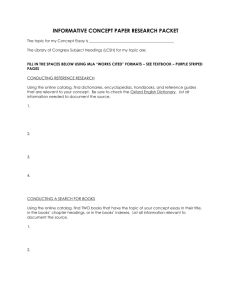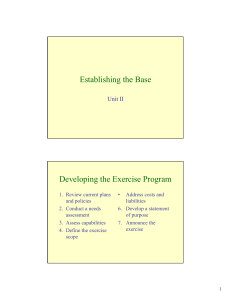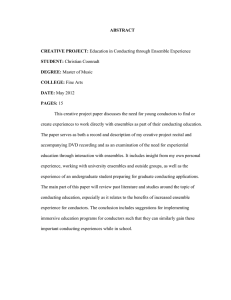Assessing Training Needs
advertisement
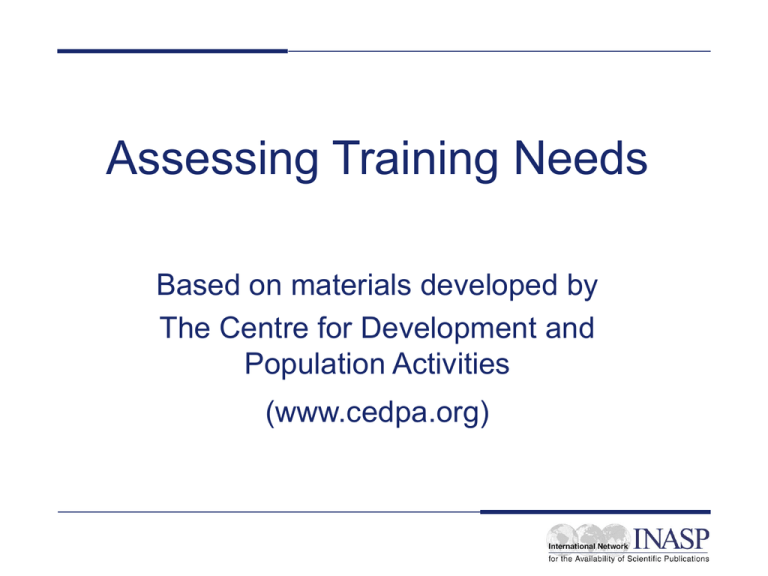
Assessing Training Needs Based on materials developed by The Centre for Development and Population Activities (www.cedpa.org) Learning objectives • By the end of this unit participants will be able to: – explain how needs assessment helps in development of a training event – list the steps for conducting a needs assessment – identify the training needs of a specific group Question? • Have you ever been in a situation where – the facilitator spent a lot of time covering material that you already knew? – the material was far more in-depth or complicated than you needed? • How did this make you feel? • How did this affect the group’s morale? So, it is important to carry out a training needs assessment before undertaking training Is training the right solution? Training can help to: – Increase knowledge – Improve skills – Support individuals to motivate and develop attitudes Training can’t: – Overcome lack of appropriate equipment or facilities – Improve problems caused by poor policies or procedures “Solutions to problems are like keys in locks; they don’t work if they don’t fit, and if the solutions aren’t the right ones, the problem doesn’t get solved” (Mager and Pipe 1970) How could you assess needs? • • • • • • Questionnaires/surveys Observation Interviews Consult key stakeholders Look at records and reports Read job description Case study • • • • • • Split into groups of 5 - 6 people Read the case study + task description Task 1: 15 minutes Task 2: 15 minutes Report back: 10 minutes Whole group to identify and agree priority training areas for the case study trainees • Whole group to identify the steps taken to determine training needs in this exercise Reflection on case study • Was it easy or difficult to determine training needs? • What might have made it easier to identify needs? • What needs, if any, cannot be met by training? Conclusions • How do you think this exercise might be useful to you when you design a training session? • Do you feel confident about conducting a needs assessment for workshops in the future? • What part do you think will be most difficult? • What part do you think will be the most useful? Further reading • Brief overview of training process – www.lboro.ac.uk/well/resources/technical-briefs/53-training.pdf • Conducting a training needs assessment by Jeanette Swist – http://www.hrarm.com/sitebuildercontent/sitebuilderfiles/training.pdf • A manual for media trainers: a learner centred approach – www.unesco.org/webworld/publications/media_trainers/manual.pdf
